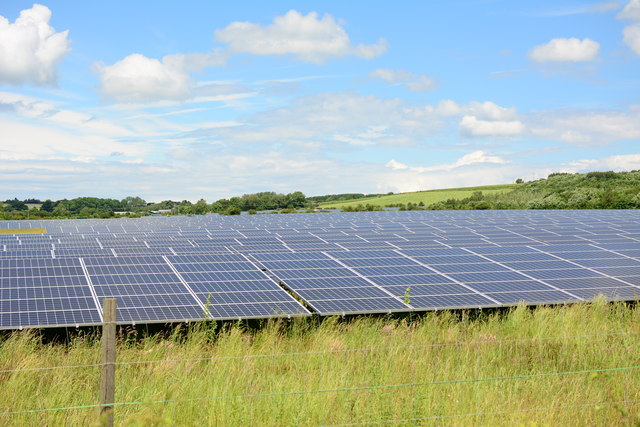In recent years, large solar arrays have grown ever more popular, meaning that many solar companies, big and small, have been seeking land to house these solar arrays. With the agricultural industry ever-changing, many farmers and landowners may be seeking alternative revenue streams now and in the coming years. It seems that a solar farm could be an excellent solution for both landowners and solar companies alike. Of course, land is valuable and there are a number of things to consider when deciding whether or not a solar farm is the right move.
Solar Arrays
In the most basic sense, a solar array is a group of solar panels wired together in order to collect energy produced by the sun. The fact that the array is on a farm, rather than home or commercial property, doesn’t change the core concept behind them. Of course, on a solar farm, the scale will be different. The more land involved in a project, the more panels will be wired together in order to create the solar array.
Time Commitment
Leasing your land for a solar farm is by no means a short-term decision, but this shouldn’t scare you off. As with all decisions, it’s simply a matter of doing your research and parsing through the finer details before committing. Contracts are typically long-term, twenty years and upwards, with options for renewal often included. Of course, this isn’t all that different from a residential solar system where the panels generally come with a warranty of twenty-five years or so. Given the length of the potential lease for a solar farm, it’s probably a good idea to consult those who may be affected in the future. Particularly in cases of family farms where the next generation may have to continue with the lease themselves.
Taxation
It’s important to be aware of the tax implications of leasing your land for a solar farm. The income you generate from this lease will need to be declared for tax purposes, and the kind of exemptions involved will differ from those associated with standard agricultural income. In addition, it’s likely that property tax will be affected by the addition of a solar array to the land. Before you decide to take the plunge and commit to a solar farm, it’s a good idea to seek professional advice regarding the tax implications.
Land Suitability
Leasing your land for a solar farm might sound extremely appealing, given the potential income you could generate with relative ease, but there are some criteria the land will have to meet before a solar array can be installed.
Though solar farms can range greatly in size, there are some minimum requirements. A good rule of thumb is that approximately 100 square feet is the required space for 1kW of solar panels. Also, there will be some extra surrounding space required for additional equipment.
Naturally, a decent amount of sunlight will be required for the solar array to operate at maximum efficacy. A nice, clear space is required to ensure that there are no large obstructions casting shadows on the panels. Things like trees and other foliage can often be removed with ease, but for buildings or other tall objects, removal may be too costly, or simply unrealistic.
Of course, there must also be access to nearby high voltage transmission lines. This is necessary so that the energy created by the solar array can be transferred and sold to utilities. This is a vital component in the process and a necessity for the profitability of the solar farm.
If you’re interested in learning more about solar farms, or solar systems in general contact YSG today or call the office at 212.389.9215. We’re more than happy to provide information, and if things go well, develop a project together!
Follow us on Twitter, Instagram + Facebook.
By Shane Croghan
Sources:
https://pivotenergy.net/news/2017/09/22/what-landowners-should-know-about-solar-land-leases
https://www.hobbyfarms.com/solar-power-leasing-agricultural-land/
https://www.staineslaw.ie/?p=812

